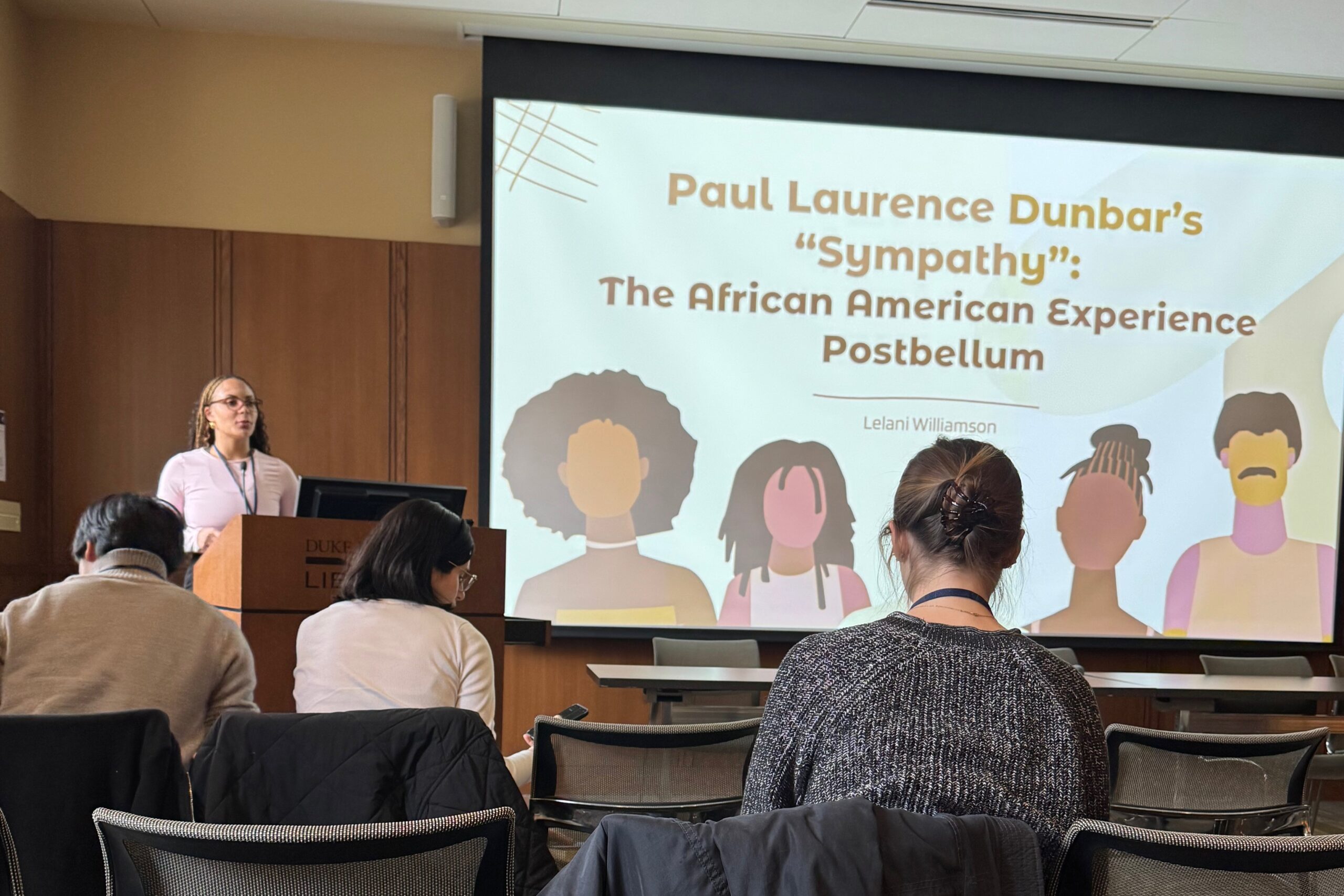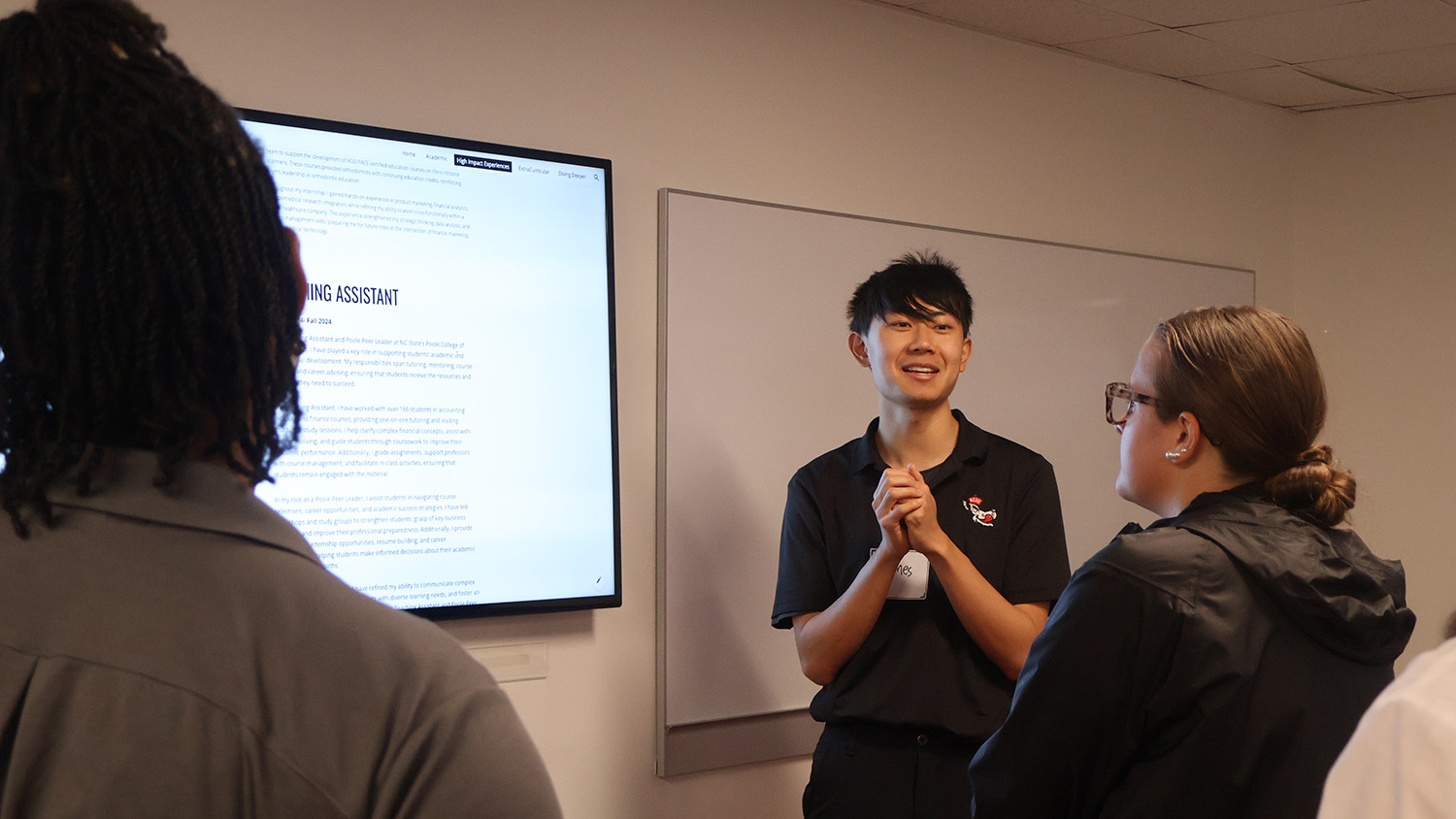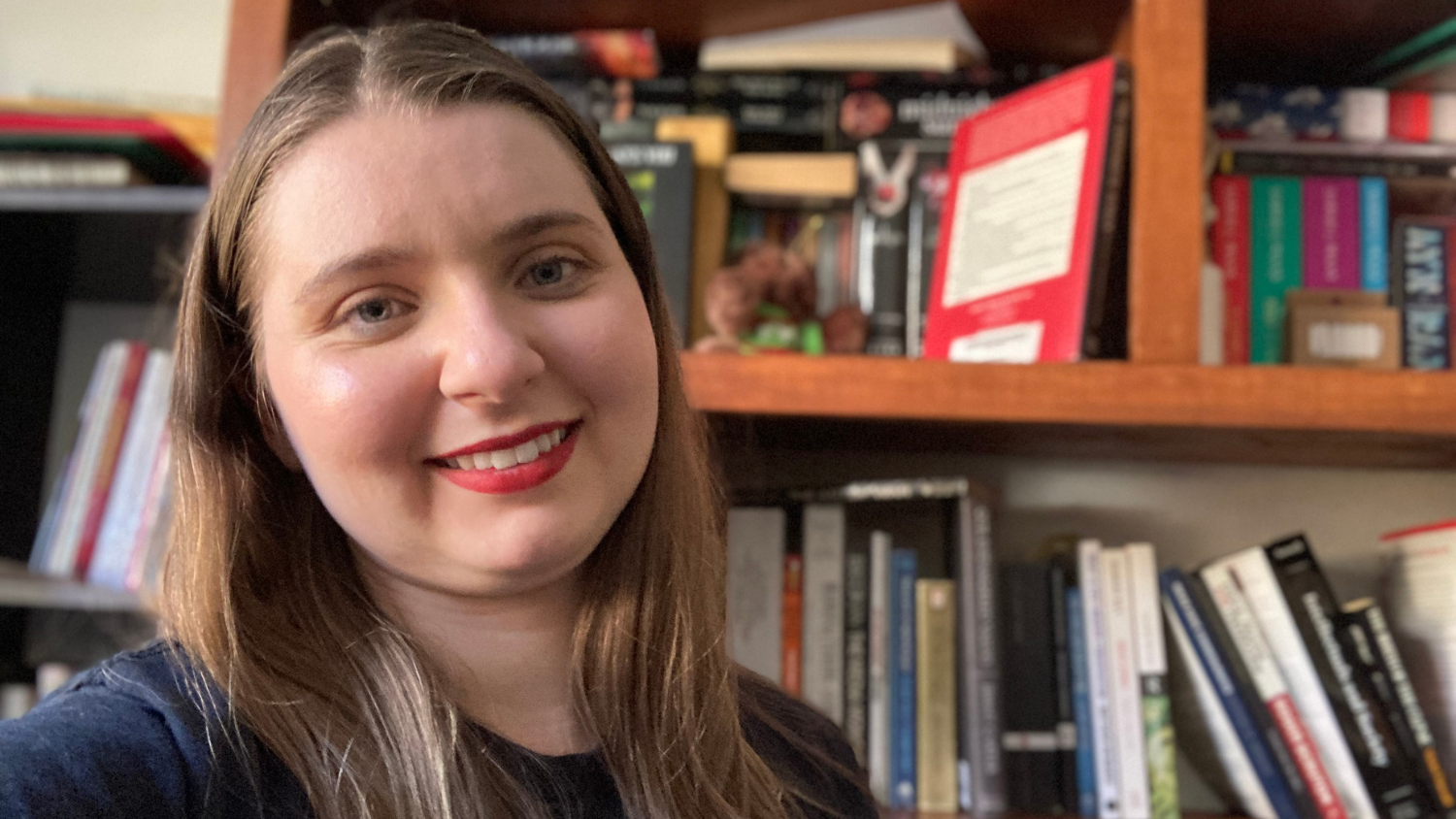Spotlight on our Students: Working with Elephants in Thailand
Christian poses with an elephant at his internship in Thailand.
“My time in the UHP has helped prepare me for an experience abroad by expanding my thinking and problem solving skills. Being able to fully understand a problem (taking all information into account) and then proposing and discussing solutions to that problem with professionals across a variety of fields is a crucially important skill that I have been using daily during my internship.”
In this edition of Spotlight on our Students, we checked in with Christian Capobianco about his internship at the Golden Triangle Asian Elephant Foundation where he is furthering his knowledge of exotic animal medicine in preparation for future veterinarian studies. Christian is a rising senior University Honors student from Holly Springs, North Carolina majoring in Animal Science. Read on to learn more about his time in Thailand and how he got involved with some of the most fascinating mammals around.
UHP: Christian, first, how amazing that you went all the way to Thailand this summer! What inspired you to get involved with the Golden Triangle Asian Elephant Foundation?

CC: I have been working towards a career in zoo/wildlife veterinary medicine for a long time now and have racked up a few connections! One of them had previously completed an internship with the Golden Triangle Asian Elephant Foundation (GTAEF) and after hearing about their mission and goals from her, I began planning the trip immediately! GTAEF functions as a refuge for elephants that cannot help themselves. They provide jobs that allow the elephants and mahouts (basically each elephant’s individual caretaker) to work with the public and educate them on the current crisis elephants face in Thailand while maintaining a world-class standard of care.
UHP: That’s really amazing! This sounds like an experience that will perfectly suit your future goals. What do you hope to learn from your work with the GTAEF?
CC: Through my work with GTAEF, I hope to gain a better understanding of elephant behavior and husbandry. I have worked with elephants before in a zoological medicine setting where they are trained to perform certain natural behaviors in order to allow veterinary staff to examine body parts, collect samples, etc. However; working with these guys in their natural habitat is very different. I want to learn more about the relationship that the mahouts have with their elephant and learn the different behavioral cues that can alert us to how an elephant may be feeling in a particular situation. Of course, I also am looking forward to furthering my understanding of elephant veterinary medicine by working closely with the veterinary staff at GTAEF. Veterinary medicine is practiced differently all over the world, so I hope to gain some insight into some of the things they do differently when compared to the United States.
UHP: So you’re gaining really useful experience, but also getting it through a completely different cultural lens; that’s fascinating. What do you hope to accomplish?
CC: By the end of my time at GTAEF, I hope to have gained a better understanding of elephants and their current plight. The situation that elephants are in is really dire and I want to feel like I contributed to making a positive change. I also look forward to enhancing my public speaking skills. I will be leading tours and giving lectures to guests daily, so I hope that I can become even more comfortable speaking in front of a crowd. I really hope that by the time I finish at GTAEF, the elephants and I will have convinced someone to be an advocate for conservation. Inspiring just one person to take action in protecting our wild species will make the hard work worth it!
UHP: Yes, persuasion is such a key concept in the fight for conservation. Can you tell us about your main responsibilities at the GTAEF?

CC: At GTAEF, the schedule varies from day to day depending upon treatment schedule and planned guest programs. As the veterinary intern, I am responsible for aiding the veterinary staff in caring for the elephants at the sanctuary. This includes performing examinations, assisting in treatments, restraint, and monitoring behavior. I also lead elephant learning programs for guests in the morning and afternoon which allows them to get up close and personal with the elephants. There is no better way (in my opinion) to get people excited about conservation than to allow them to see how incredible the animals are for themselves. I am so proud of GTAEF and the programs that they offer. I feel that guests leave wanting to spread the message of conservation and advocate for the protection of this endangered species.
UHP: So you really are up close and personal with the elephants day after day – that’s so cool. How has your time in the UHP prepared you for this experience?
CC: My time in the UHP has helped prepare me for an experience abroad by expanding my thinking and problem-solving skills. Being able to fully understand a problem (taking all information into account) and then proposing and discussing solutions to that problem with professionals across a variety of fields is a crucially important skill that I have been using daily during my internship. With the current state of elephants in Thailand, we need to come up with solutions quickly! It has become a part of my job to discuss potential options with my co-workers and supervisors and learn about the various programs that are currently in the works. It is only through this interdisciplinary collaborative effort that we can make a positive impact on the elephant population.
UHP: So, many people might read this interview and think, “there’s no way I could do this”. What would you tell other University Honors students about how to prepare for an internship abroad?

CC: The best advice that I could give other UHP students about completing an internship abroad is to not over-plan! Over-planning is something that I have always fallen victim to in the past. I would get so excited about my trip that I’d plan visits to all of the local tourist destinations. Do NOT do this! The locals always know best! Talk with your internship coordinator, roommate, etc. and figure out where you should visit while in the country in that specific area. From there, you can plan out your visits day by day. Relax and take your time! You are never going to be able to see everything, so just enjoy the sites that you are able to visit!
UHP: While living and working abroad, there are innumerable challenges that one faces. What’s the strangest/funniest intercultural mixup you’ve had as a part of this experience so far?
CC: The funniest intercultural mix-up that I have had so far would have to be during the first day of lunch at the staff canteen. In Thailand, people take of their shoes to enter almost any building out of respect; however, they do not take them off in all places! Apparently, the staff lunch room is one of those places. When I walked into the room barefoot and was the only one in there without shoes, it was super embarrassing and I was also pretty confused! Thankfully, no one really noticed while I went to go get my sandals back on!
UHP: HA! Well, at least no one noticed, right? Christian, thanks for taking time to share your story with us and best of luck for the remainder of your time there. We’re really looking forward to hearing more about it this fall when you’re back on campus.
- Categories:


